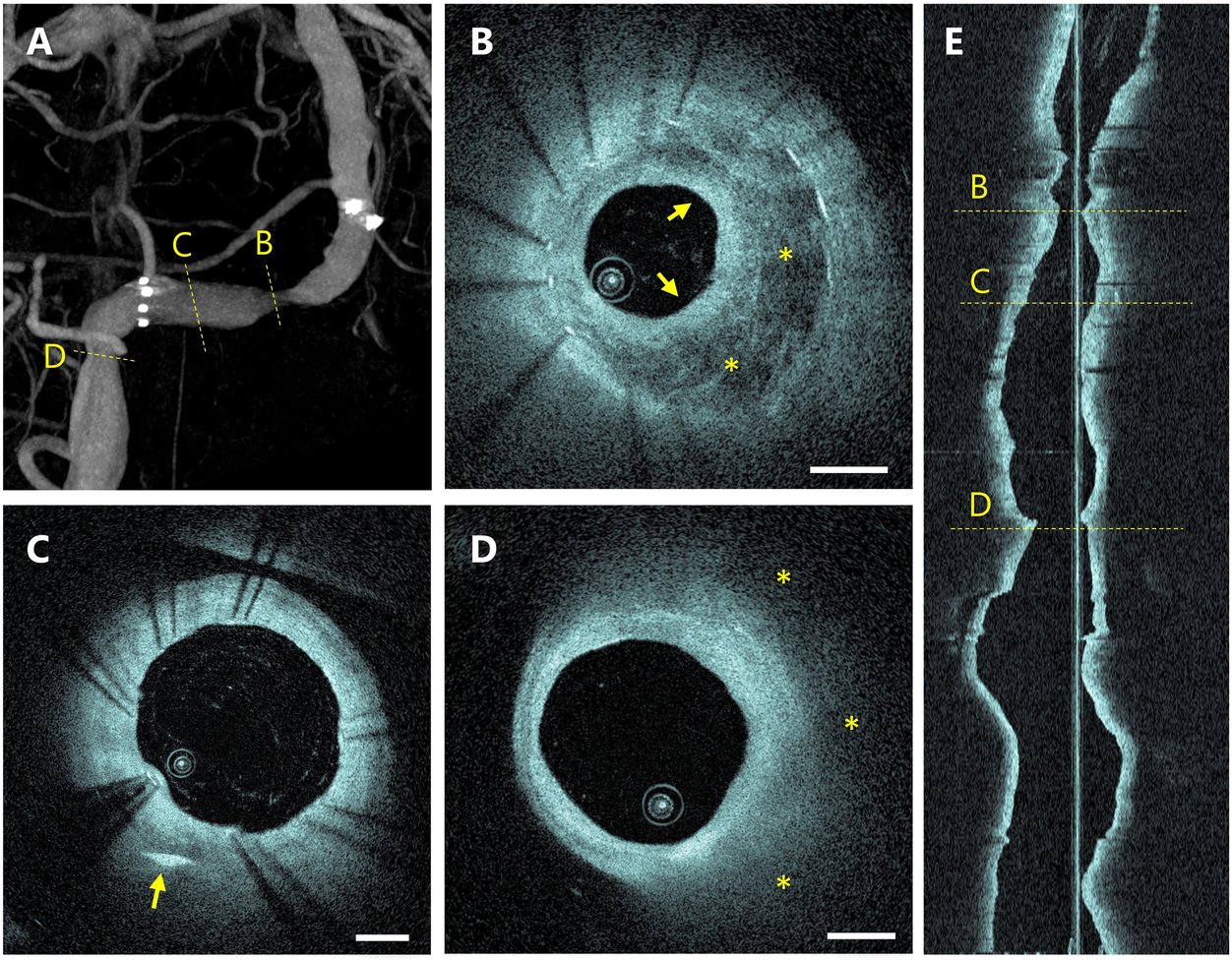medical devices
Detecting risk of stroke by probing inside brain's blood vessels

PEREIRA ET AL., SCI. TRANS. MED. 16, EADL4497 (2024)
Inside the brain, there are teeny, tiny arteries that twist and turn as blood travels through them. When someone suffers a stroke, there's something going on in those arteries. But they're so small that researchers and clinicians haven't been able to see inside them to fully understand it. Until now, neurologists have glimpsed the vessel wall only from the outside, with X-rays using contrast medium to show their shape (see Image A above).
But now, researchers have designed a probe minuscule enough to fit inside the microcatheters that surgeons snake into cerebral arteries to place reinforcing stents or to scoop out clots. Their probe delivered images from inside the arteries of 32 patients, detecting possible problems like inflammation by illuminating the tissue and collecting back-scattered near-infrared light (Images B, C, and D). The study, published yesterday in Science Translational Medicine, offers proof of concept for miniaturized, high-resolution visualization to see more clearly what's going wrong and what to do about it. Read more from STAT's Liz Cooney.
first opinion
It takes more than medication to treat chronic pain
Millions of Americans live with chronic pain, with new cases occurring more often than new cases of diabetes, depression, and high blood pressure. But still, relief from chronic pain is too often a result of luck and what's in one's bank account, two clinicians write in today's First Opinion.
Even with the development of effective pain-related resources, they write that they often hear "I can't afford that" from patients. Insurers reject coverage and have high copays, while treatments that aren't covered by insurance at all seem to be pervasive. Contrary to the often-ambiguous insurance coverage guidelines and inaccurate AI-driven algorithms for approval or denial of care, there is no one-size-fits-all solution for treating chronic pain, the authors write. They argue that health insurers need to change how they pay for team-based pain care and prevent the disabling effects of pain. "This may seem like a colossal feat," they write. "But it doesn't have to be." Read more.


No comments